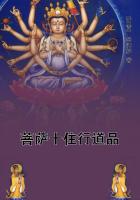Such a science might have two legitimate fields: first, the refutation and explanation of false philosophies still hovering in the air as they appear from the point of view of later experience or are comprehended in the history of the human mind, as in a larger horizon: secondly, it might furnish new forms of thought more adequate to the expression of all the diversities and oppositions of knowledge which have grown up in these latter days; it might also suggest new methods of enquiry derived from the comparison of the sciences. Few will deny that the introduction of the words 'subject' and 'object' and the Hegelian reconciliation of opposites have been 'most gracious aids' to psychology, or that the methods of Bacon and Mill have shed a light far and wide on the realms of knowledge. These two great studies, the one destructive and corrective of error, the other conservative and constructive of truth, might be a first and second part of logic. Ancient logic would be the propaedeutic or gate of approach to logical science,--nothing more. But to pursue such speculations further, though not irrelevant, might lead us too far away from the argument of the dialogue.
The Euthydemus is, of all the Dialogues of Plato, that in which he approaches most nearly to the comic poet. The mirth is broader, the irony more sustained, the contrast between Socrates and the two Sophists, although veiled, penetrates deeper than in any other of his writings. Even Thrasymachus, in the Republic, is at last pacified, and becomes a friendly and interested auditor of the great discourse. But in the Euthydemus the mask is never dropped; the accustomed irony of Socrates continues to the end...
Socrates narrates to Crito a remarkable scene in which he has himself taken part, and in which the two brothers, Dionysodorus and Euthydemus, are the chief performers. They are natives of Chios, who had settled at Thurii, but were driven out, and in former days had been known at Athens as professors of rhetoric and of the art of fighting in armour. To this they have now added a new accomplishment--the art of Eristic, or fighting with words, which they are likewise willing to teach 'for a consideration.' But they can also teach virtue in a very short time and in the very best manner. Socrates, who is always on the look-out for teachers of virtue, is interested in the youth Cleinias, the grandson of the great Alcibiades, and is desirous that he should have the benefit of their instructions. He is ready to fall down and worship them; although the greatness of their professions does arouse in his mind a temporary incredulity.
A circle gathers round them, in the midst of which are Socrates, the two brothers, the youth Cleinias, who is watched by the eager eyes of his lover Ctesippus, and others. The performance begins; and such a performance as might well seem to require an invocation of Memory and the Muses. It is agreed that the brothers shall question Cleinias. 'Cleinias,' says Euthydemus, 'who learn, the wise or the unwise?' 'The wise,' is the reply;given with blushing and hesitation. 'And yet when you learned you did not know and were not wise.' Then Dionysodorus takes up the ball: 'Who are they who learn dictation of the grammar-master; the wise or the foolish boys?' 'The wise.' 'Then, after all, the wise learn.' 'And do they learn,' said Euthydemus, 'what they know or what they do not know?' 'The latter.' 'And dictation is a dictation of letters?' 'Yes.' 'And you know letters?' 'Yes.' 'Then you learn what you know.' 'But,' retorts Dionysodorus, 'is not learning acquiring knowledge?' 'Yes.' 'And you acquire that which you have not got already?' 'Yes.' 'Then you learn that which you do not know.'
Socrates is afraid that the youth Cleinias may be discouraged at these repeated overthrows. He therefore explains to him the nature of the process to which he is being subjected. The two strangers are not serious;there are jests at the mysteries which precede the enthronement, and he is being initiated into the mysteries of the sophistical ritual. This is all a sort of horse-play, which is now ended. The exhortation to virtue will follow, and Socrates himself (if the wise men will not laugh at him) is desirous of showing the way in which such an exhortation should be carried on, according to his own poor notion. He proceeds to question Cleinias.
The result of the investigation may be summed up as follows:--All men desire good; and good means the possession of goods, such as wealth, health, beauty, birth, power, honour; not forgetting the virtues and wisdom. And yet in this enumeration the greatest good of all is omitted. What is that? Good fortune. But what need is there of good fortune when we have wisdom already:--in every art and business are not the wise also the fortunate? This is admitted. And again, the possession of goods is not enough; there must also be a right use of them which can only be given by knowledge: in themselves they are neither good nor evil--knowledge and wisdom are the only good, and ignorance and folly the only evil. The conclusion is that we must get 'wisdom.' But can wisdom be taught? 'Yes,' says Cleinias. The ingenuousness of the youth delights Socrates, who is at once relieved from the necessity of discussing one of his great puzzles. 'Since wisdom is the only good, he must become a philosopher, or lover of wisdom.' 'That I will,' says Cleinias.
After Socrates has given this specimen of his own mode of instruction, the two brothers recommence their exhortation to virtue, which is of quite another sort.
'You want Cleinias to be wise?' 'Yes.' 'And he is not wise yet?' 'No.'
'Then you want him to be what he is not, and not to be what he is?--not to be--that is, to perish. Pretty lovers and friends you must all be!'















